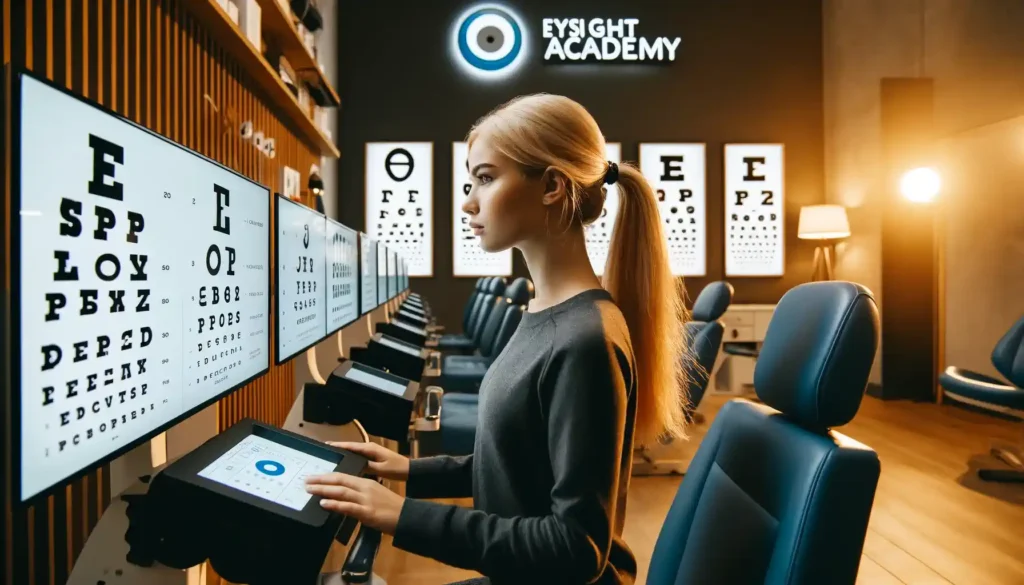Top 10 Must-Know Facts About Eye Floaters. Eye floaters are a very common occurrence that many people experience at some point. Eye Floaters are tiny, drifting particles that appear in your field of vision and can be a cause for concern or curiosity.

In this article, I want to share 10 essential Must-Know facts about eye floaters to help you better understand what they are, and why they happen.
1. What Are Eye Floaters?
Eye floaters are tiny particles that cast shadows on the retina, the light-sensitive tissue lining the back of the eye. These shadows create the illusion of floating specks, strands, or dots in your visual field.
2. Types of Eye Floaters
Floaters come in various forms, including black or gray dots, squiggly lines, and spider-web-like shapes. Their appearance can vary from person to person.
3. Natural Part of the regeneration
The gel-like substance within the eye known as the vitreous begins to liquefy and shrink. This can lead to the formation of floaters as the collagen fibers within the vitreous clump together.
4. Causes of Eye Floaters:
Eye floaters can also result from eye injuries, inflammation, and retinal tears. It’s crucial to differentiate between harmless floaters and those that could indicate a more serious issue.
5. Most Often Eye Floaters Harmless:
In many cases, floaters are harmless and are simply a part of the natural process. Especially if you have myopia or farsightedness. Spasms of accommodation put pressure on your eyeballs and eye floaters can appear. However, if you suddenly notice a significant increase in the number of floaters or experience flashes of light, it’s advisable to consult an eye specialist.
6. When to Seek Medical Attention:
If you experience a sudden increase in eye floaters, especially accompanied by flashes of light, a loss of peripheral vision, or a shadow across your vision, it could be a sign of a retinal tear or detachment. Seek immediate medical attention to prevent vision loss.
7. Diagnosing Floaters:
An eye doctor can diagnose the cause of your floaters through a comprehensive eye examination. They may use special equipment for this.
8. How to cure eye floaters?
Most harmless floaters require no treatment and tend to become less bothersome over time as your brain adjusts to them. You can do eye exercises to increase blood flow in your eyes. Eye exercises can speed up the eye floater dissolving process.
Eye Training Course Eyesight Academy with step-by-step best eye exercises and relaxation techniques and eye floaters treatment natural system can help you.
9. Lifestyle adjustments
Maintaining a healthy lifestyle with a balanced diet, regular exercise, and eye training will help you to improve overall eye health.
10. Prevention of eye floaters
While not all floaters can be prevented, you can reduce your risk by protecting your eyes from injury, Most of eye floaters are harmless.
Essential Facts You Need to Know to Heal Eye Floaters Naturally

While eye floaters can be annoying, they generally don’t interfere with sight. Most people learn to live with floaters and ignore them; they often become less noticeable with time. However, if you’re looking to reduce or heal eye floaters naturally, here are some essential facts and strategies you should know.
Natural Healing Strategies for Eye Floaters

While there’s no universally acknowledged medical treatment to completely remove floaters except in severe cases (e.g., via vitrectomy or laser treatment), several natural approaches can help reduce their severity or mitigate their impact.
1. Dietary Changes
Antioxidant-Rich Foods: Increasing your intake of antioxidants can help protect the eyes. Focus on eating green, leafy vegetables like spinach and kale, as well as citrus fruits and berries.
Water: Staying well-hydrated is essential for maintaining the health of the vitreous body.
2. Supplements
Taurine: This amino acid is found in the retina and helps protect against tissue degeneration. Taurine supplements can support overall eye health.
Lutein and Zeaxanthin: These carotenoids are found in high concentrations in the retina and help protect against oxidative damage.
Omega-3 Fatty Acids: Found in fish oil and flaxseed oil, omega-3s are known to support eye health and reduce inflammation.
3. Exercise
Regular exercise can improve circulation, which might help to remove wastes from the vitreous more efficiently, potentially reducing the presence of floaters.
4. Reduce Eye Strain
- Adjust Lighting: Use adequate lighting to reduce eye strain when reading or doing work that requires visual precision.
- Take Breaks: Follow the 20-20-20 rule; every 20 minutes, look at something 20 feet away for at least 20 seconds to reduce eye strain.
5. Complementary Therapies
Acupuncture: Some believe acupuncture can help improve blood circulation to the eyes and reduce symptoms of floaters.
Hydration Therapy: Adequate water intake helps maintain the vitreous fluid’s consistency.
Eye Floaters Conclusion
Natural remedies may help alleviate the symptoms of eye floaters but are generally more effective for mild cases. These strategies focus on overall eye health, which can prevent new floaters from forming and reduce the impact of existing ones. If you’re concerned about eye floaters, consult with a healthcare provider to explore the most appropriate approach for your specific condition.
